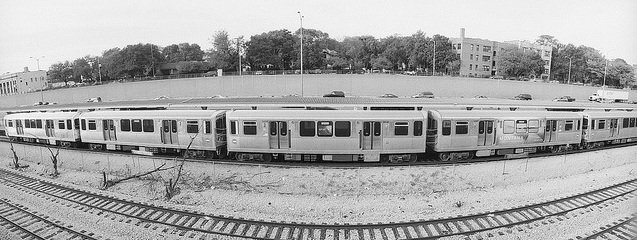CTA Scaling Back Spot-Cleaning Of Rail Cars
By Chuck Sudo in News on Dec 10, 2013 8:35PM
Chicago Transit Authority and the head of the union representing rail workers for the agency are pointing fingers at each other after CTA announced they were ending their apprenticeship program where ex-offenders were employed to spot clean rail cars.
CTA spokesman Brian Steele confirmed to the Tribune the program would end effective Jan. 1 and that all current daytime car-servicer crews were being re-assigned to replace the apprentice crews who worked the graveyard shift. While this news may concern readers who already worry about the hobo corner surprises, Steele assured there would be no dropoff in the cleanliness of CTA’s trains.
Amalgamated Transit Union Local 308 President Robert Kelly said it was CTA’s decision to end the apprenticeship program that “could become a serious health matter for the public.” In addition to ending the program, Kelly claims general cleaning of CTA rail cars (which include mopping floors, graffiti and gum removal and cleaning seats and stainless steel surfaces) would be pushed back to every 16 days instead of its current 14-day cycle.
CTA said in a statement that it was Kelly who pushed for ending the apprenticeship program, which had become a bargaining chip in labor negotiations between the two sides in recent years. CTA said the money freed up by ending the program would allow them to hire more car-servicers.
The Inner City Youth and Adult Foundation (ICYAF) also blames Kelly for the end of the program. ICYAF President Maurice Perkins released a statement to media Monday claiming Kelly has advocated eliminating the program for years and his actions “demonstrates his lack of concern for black people.”
“It’s interesting that he is willing to take their dues during their apprenticeships, but can’t wait to kick them into the streets after their money is in the union’s coffers,” Perkins added.
